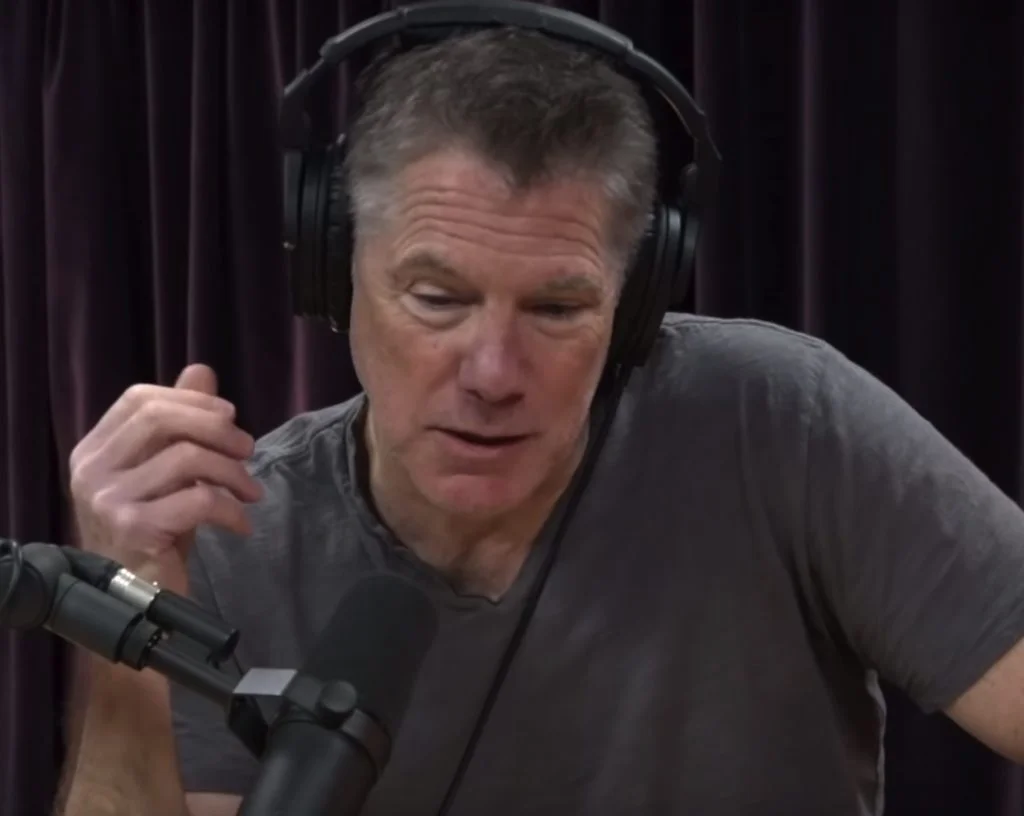
Mike Baker
Mike Baker is a seasoned former CIA agent with a storied career in the world of intelligence and security. Baker embarked on a path of service early in life, joining the Central Intelligence Agency where he honed his skills in covert operations, espionage, and counterterrorism. During his tenure at the CIA, Baker played a pivotal role in numerous high-profile operations, working in some of the world's most challenging and dangerous environments. His dedication and expertise earned him accolades and commendations for his contributions to national security. Following his retirement from the CIA, Mike Baker has continued to make a significant impact in the private sector, specializing in risk management, security consulting, and strategic intelligence analysis. With his wealth of experience and unwavering commitment to safeguarding global interests, Mike Baker remains a respected figure in the world of intelligence and security.
The Joe Rogan Experience (JRE) #1519 with Mike Baker: A Comprehensive Analysis
In this episode of “The Joe Rogan Experience,” Joe hosts Mike Baker, an American British former covert operations officer with the Central Intelligence Agency. Baker is also the host of “Black Files Declassified” on the Science Channel. The conversation, rich in content and varied in topics, offers insights into contemporary issues ranging from the COVID-19 pandemic to political tensions and media biases.
COVID-19: Testing, Treatments, and Politics
The discussion begins with Joe and Mike addressing the COVID-19 pandemic, sharing their experiences with testing and the varying response times across the country. They delve into the inconsistencies in testing, the types of COVID-19 tests available, and the implications of these disparities.
Mike Baker emphasizes the importance of understanding the science and data behind the virus while acknowledging the political dimensions that have influenced public perceptions and media coverage. He raises concerns about how the political climate, particularly attitudes towards the president, might be affecting the public discourse on COVID-19, suggesting that the narrative could change post-election.
Hydroxychloroquine: A Controversial Treatment
The conversation then shifts to hydroxychloroquine, a drug that has been a point of contention in the treatment of COVID-19. Joe and Mike discuss the mixed messages from health professionals and the media, reflecting on how political biases might be influencing the acceptance of this treatment.
The Role of Media and Information Dissemination
Joe and Mike critically analyze the role of media in shaping public opinion, especially in the context of the pandemic. They explore how political biases can skew reporting, leading to public confusion and misinformation. This part of the discussion highlights the challenges in finding reliable and unbiased information in an era of information overload and partisan journalism.
Political Landscape and Upcoming Elections
The episode also touches on the political landscape of the United States, particularly the upcoming presidential elections. Mike Baker shares his views on the potential outcomes and the factors that might influence the election results. The conversation encompasses a variety of political topics, including the candidates’ policies, public perceptions, and the role of the media in the electoral process.
Joe Rogan & Mike Baker on JRE #1519: Understanding the Challenges of Unbiased News Reporting
In a world increasingly polarized and influenced by ideological biases, the pursuit of objective news remains a complex challenge. A conversation from the podcast transcript highlights the difficulties in maintaining unbiased reporting, especially in political contexts. The discussion emphasizes the intricate nature of news delivery, revealing the multifaceted aspects of bias and its impact on journalism.
The Influence of Educational Systems on Political Views
A significant part of the conversation delves into how educational institutions influence political perspectives. The podcast guests discuss the prevalence of liberal ideologies in universities and how this shapes the opinions of students. They explore the reluctance of students with differing views to express their opinions, highlighting a trend towards conformity. This segment of the discussion sheds light on the broader implications of education on political beliefs and public discourse.
The Role of Human Nature in Shaping Beliefs
Another focal point is the inherent human tendency to conform to the dominant views within a social group. The conversation touches upon the idea that most people, despite considering themselves independent thinkers, often align with the prevailing opinions of their social circles. This behavior underscores the challenges in fostering truly diverse and independent thinking within societal structures.
The Dilemma of Objective News in a Polarized World
The podcast also addresses the practical challenges of establishing a truly unbiased news platform. It recognizes the cost and complexity of setting up such an operation, along with the near-impossible task of ensuring complete objectivity among reporters and staff. This discussion points to the broader issue of whether absolute objectivity in news is achievable in today’s polarized environment.
The Influence of Cultural Movements on Individual Beliefs
A portion of the transcript also examines how cultural movements, particularly those related to political correctness and social justice, influence individual beliefs and societal norms. The conversation suggests a cautious approach to absolute ideologies and the dangers of extremism in any form.
Conclusion
This segment of the podcast transcript offers a nuanced exploration of the challenges in achieving unbiased news reporting in a politically charged and ideologically diverse world. It underscores the complexity of human nature, the influence of educational systems, and the intricacies of setting up an objective news operation. The conversation invites readers to consider the multi-dimensional aspects of news, education, and societal beliefs, emphasizing the importance of critical thinking and open discourse in navigating these challenges
